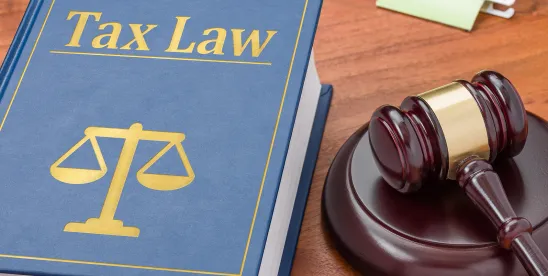On May 12, 2025, the House Ways and Committee released an updated text of draft tax legislation (the “House Draft Bill”). Amongst the proposed provisions are a few significant changes that could particularly affect nonprofits and individuals working with or for nonprofits:
- Nonprofits would be required to pay tax on the sale or license of any name or logo of the organization (generally at the corporate rate of 21%). Under current law, nonprofits do not ordinarily pay tax on royalties from an unrelated payor—the House Draft Bill would specifically identify gain and royalty income from the name or logo as “unrelated business taxable income.” This provision could have a material impact on sports-related tax exempts and private universities that license their name or logo in connection with collegiate sports activities.
- For private colleges and universities, the current excise tax on net investment income (generally taxed at 1.4%) would be replaced with a multiple-tier tax on net investment income based on the college’s or university’s “student-adjustment endowment”. The tax rate scales up to 21% for a sufficiently large endowment. Additionally, for such colleges and universities, the definition of net investment income would be expanded (to include, for instance, interest on student loans and “Federally-subsidized royalty income”). The provision grants the Treasury with specific authority to prescribe regulations or other guidance, as necessary, to prevent the avoidance of this excise tax.
- For private foundations, the current 1.39% tax rate would be replaced by a tiered tax on net investment income based on the total gross value of the assets held by the foundation—the top rates reaching 10%.
- Nonprofits (other than “churches” or certain “church-affiliated organizations”) would have to pay tax (generally at the corporate rate of 21%) on parking facilities and transportation fringe benefits. The Tax Cuts and Jobs Act of 2017 had originally included similar provisions imposing taxes on such facilities and benefits, but these provisions had been retroactively repealed in 2019.
- The excise tax imposed on significant compensation paid to the 5 highest-compensated employees of an applicable tax-exempt organization would be expanded to all employees of the organization or any related person or governmental entity.
- A 1% floor would be added for charitable contribution deductions made by corporations.
All of these provisions would generally come into effect after 2025. It is, of course, possible that the above changes will not be included in the final tax legislation, or that material modifications could be made to such provisions before they are voted upon. The Ways and Means Committee held its markup session on May 13, 2025, and it voted to advance the House Draft Bill to the House floor. The full panoply of further legislative steps (such as Senate consideration, and any reconciliation between Senate and House versions) are to come, although Congressional leadership has stated that the goal is to finalize the legislation by July 4, 2025.





 />i
/>i
